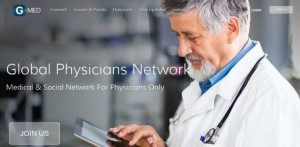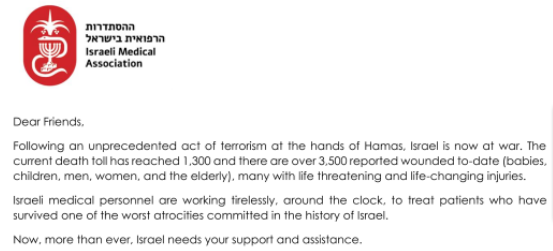 G-Med, the world’s first and only global social-professional network exclusively for physicians, allows doctors anywhere to consult with colleagues, manage multinational research projects and offer virtual services to patients.
G-Med, the world’s first and only global social-professional network exclusively for physicians, allows doctors anywhere to consult with colleagues, manage multinational research projects and offer virtual services to patients.
Launched in Israel last year, G-Med proved so popular that its founder, Hagar Mordoch, took it global at the end of 2013. Today this unique social network has about 20,000 users from more than 50 different countries.
That kind of diversity was just what Dr. Sagi Harnof needed when he recently began planning brain surgery for a patient who is a Jehovah’s Witness. This religion forbids blood transfusions. Harnof, deputy chief of neurosurgery at Israel’s Sheba Medical Center, rarely encounters Jehovah’s Witnesses and so he presented the case via G-Med.
“I got comments from colleagues in North and South America and Europe,” says Harnof, who is one of the site’s two medical advisers. The online guidance helped him strategize the best surgical procedure for the patient’s health and religious beliefs.
“For me, the ability to have discussions on medical and paramedical issues between physicians all over the world is very exciting. There are no borders for medicine, and it’s only natural to talk between professionals and share thoughts,” Harnof tells ISRAEL21c. “It’s only the beginning, but I feel it’s a very nice platform to communicate between physicians.”
Consultations and research
G-Med members are categorized by medical specialty, making it simple to find an expert in a particular field. Mordoch points out that specialists often need a consultation in a different specialty, for example an obstetrician needing advice on treating a pregnant patient who has an infectious disease.
“In any consultation, you can see each medical case is being solved from the input of many physicians from a lot of different specialties and countries,” she tells ISRAEL21c.
Users can join and create physician groups and expert panels around common interests, ideas, activities or events. They can comment on posts and publications of peers, and post job offers, text, pictures, videos and files under their real names or anonymously. They can participate in professional surveys, focus groups and distance-learning courses.
Because of its international nature, the website’s common language is English, though physicians may write queries in their native language.
“There is social networking just for US physicians and a few in other countries such as Germany, all in the local language, but until G-Med there was no international closed network,” Mordoch says.
One heavily used feature is managing research projects that span more than one country.
“I’m running several clinical trials internationally, and all the participating physicians are in a unique group on G-Med where we can share information on patients and protocols and solve problems,” says Harnof.
This secure feature is compliant with the US HIPAA regulations for patient privacy, and can also be used for promoting research and publicizing requests for recruiting trial participants.
Private clinics coming next
Mordoch reveals that the Tel Aviv-based G-Med will soon provide the option of private online clinics, giving any physician, or group of physicians, exposure to patients around the world via text, audio and video components.
“A lot of users are interested,” says Mordoch. “Hundreds of physicians want to start their clinics now. This will give patients anywhere the ability to speak to the best doctors in the world without leaving their home.”
Mordoch expects this will be popular especially in areas where it’s difficult to get healthcare services. At some point, she also wants to start a separate pro-bono medical consultation program for needy locales.
Her original intention was to build a social network where patients could share their opinions about specific physicians, with a feature for viewing physicians according to their professional ranking, in order to help users choose doctors in the most objective manner.
“That was a couple of years ago, and we started to build something along those lines,” says Mordoch, whose background is in finance. “In working with doctors, however, we saw that what they needed is to talk to each other, to consult in a secure way and build an international community. So we decided to start such a community in Israel and see what happens. We got a few thousand doctors participating here, and decided to open it globally. It’s amazing how we’re growing.”
G-Med was launched with private equity and continues to be supported by private investors as a new funding round begins. The staff currently consists of eight employees.


